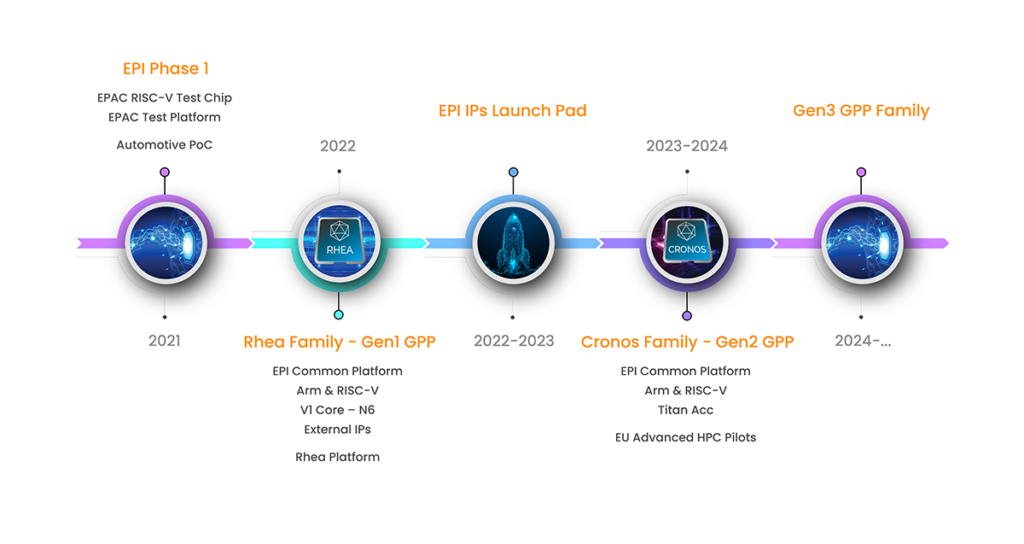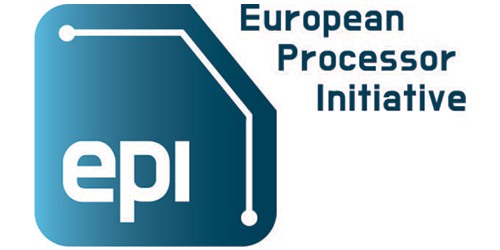Europe has an ambitious plan to become a main player in supercomputing. One of the core components for achieving that goal is a processor. The European Processor Initiative (EPI) is a part of a broader strategy to develop and independent European HPC industry based on domestic and innovative technologies as presented in the EuroHPC Joint Under-taking proposed by the European Commission.
The general objective of EPI is to design a roadmap and develop the key Intellectual Property for future European low-power processors addressing extreme scale computing (exascale), high-performance, big-data and emerging verticals (e.g. automotive computing) and other fields that require highly efficient computing infrastructure. More precisely, EPI aims at establishing the key technologies to reach three fundamental goals:
- Developing low-power processor technology to be included in advanced experimental pilot platforms towards exascale systems for Europe;
- Ensuring that a significant part of that technology and intellectual property is European;
- Ensuring that the application areas of the technology are not limited only to HPC, but cover other areas, such as automotive and data centres, thus ensuring the economic viability of the initiative.
EPI gathers 28 partners from 10 European countries, with a wide range of expertise and background: HPC, supercomputing centres, automotive computing, including researchers and key industrial players. The fact that the envisioned European processor is planned to be based on already existing tools either owned by the partners or being offered as open-source with a large community of users provides three key exploitation ad-vantages: (1) the time-to-market will be reduced as most of these tools are already used in industry and well known. (2) It will enable
EPI partners to incorporate the results in their commercial portfolio or in their scientific roadmap. (3) it fundamentally reduces the technological risk associated to advanced technologies developed and implemented in EPI.
EPI covers a complete range of expertise, skills, and competencies needed to design and execute a sustainable roadmap for research and innovation in processor and computing technology, fostering future exascale HPC and emerging applications, including Big Data, and automotive computing for autonomous vehicles. Development of a new processor to be at the core of future computing systems will be divided into several streams:
- Common Platform and global architecture [stream 1]
- HPC general purpose processor [stream 2]
- Accelerator [stream 3]
- Automotive platform [stream 4]
The results from the two streams related to the general-purpose processor and accelerator chips will generate a heterogeneous, energy-efficient CPU for use in both standard and non-traditional and compute-intensive segments, e.g. automotive where SoA in autonomous driving requires significant computational resources.
EPI strives to maximize the synergies between the two streams and will work with existing EU initiatives on technology, infrastructure and applications, to position Europe as a world leader in HPC and emerging markets for exascale era such as automotive computing for autonomous driving.





